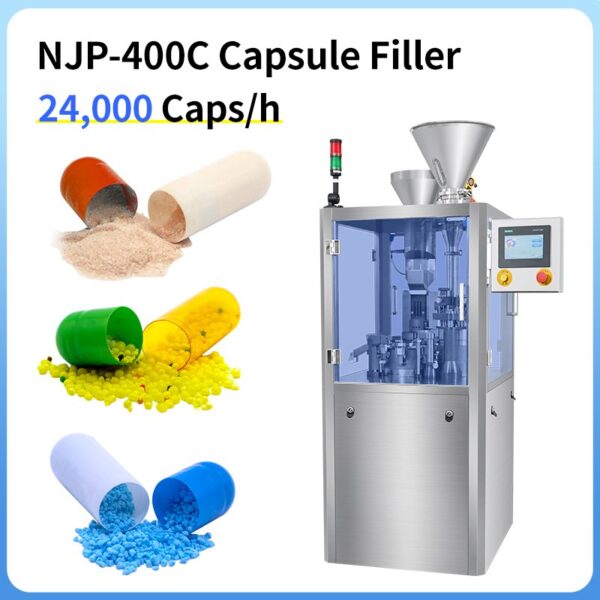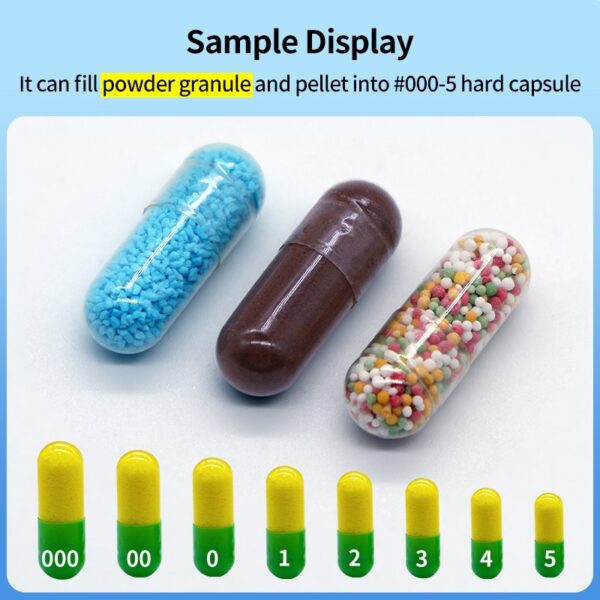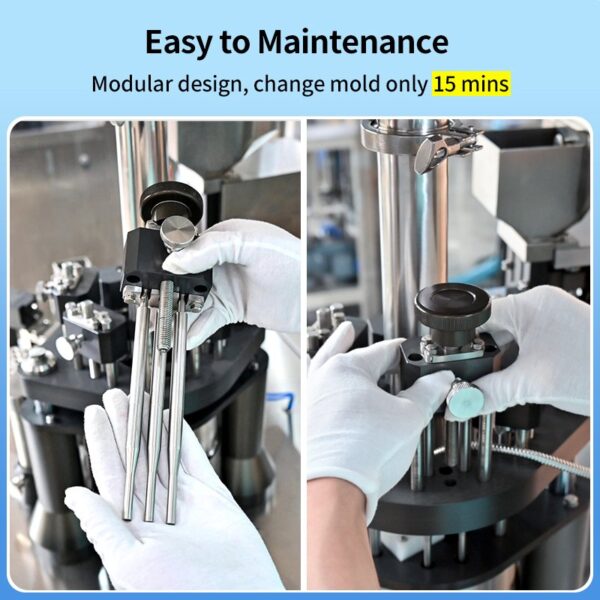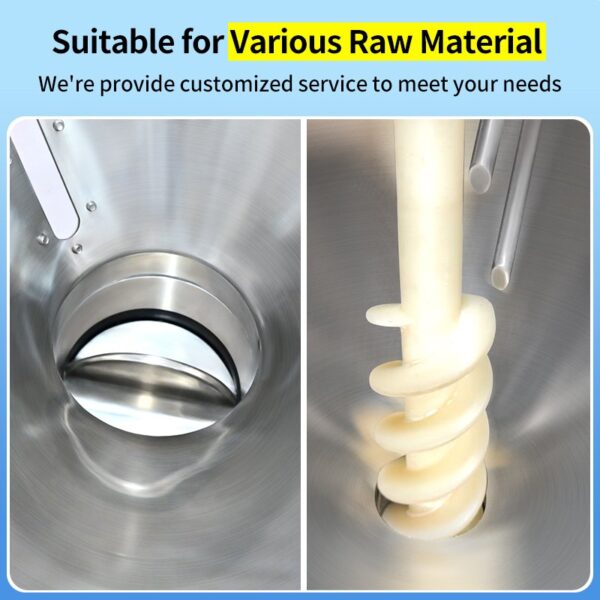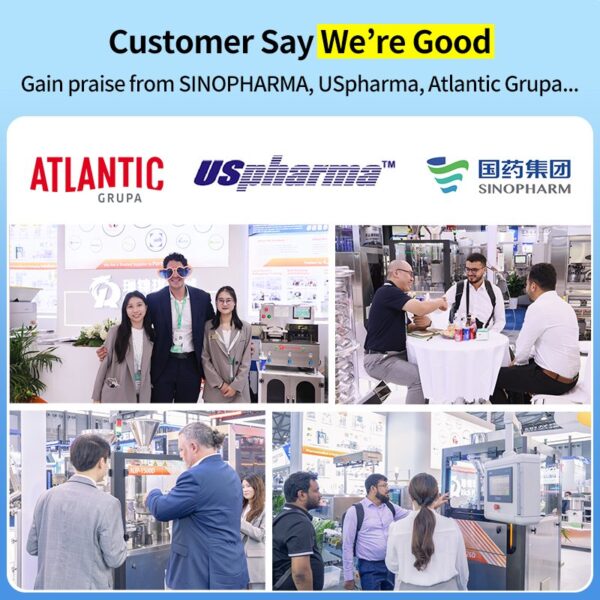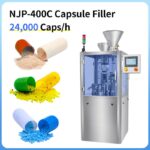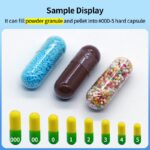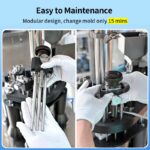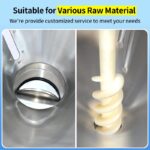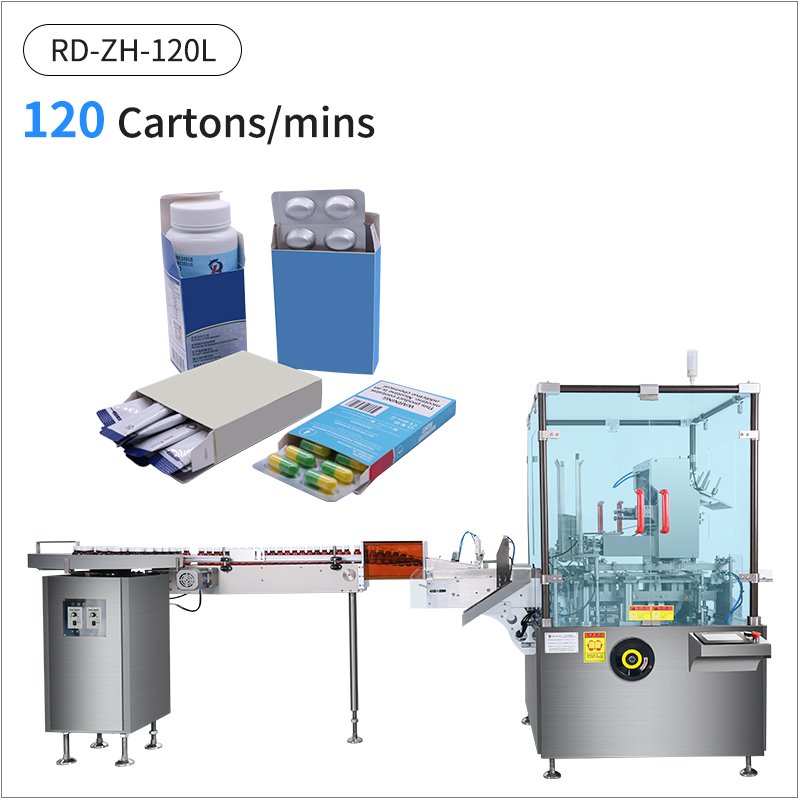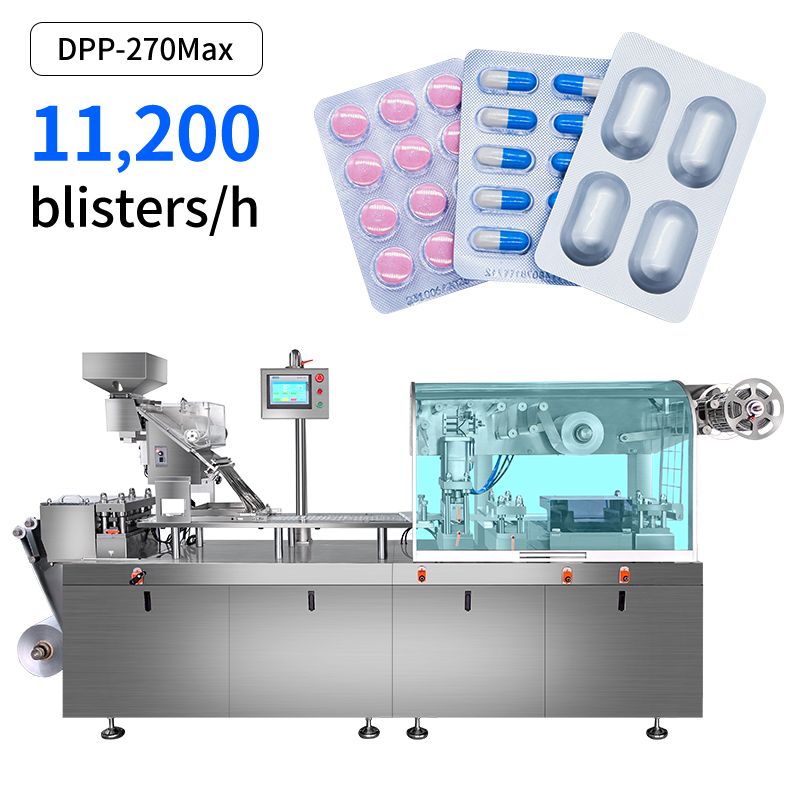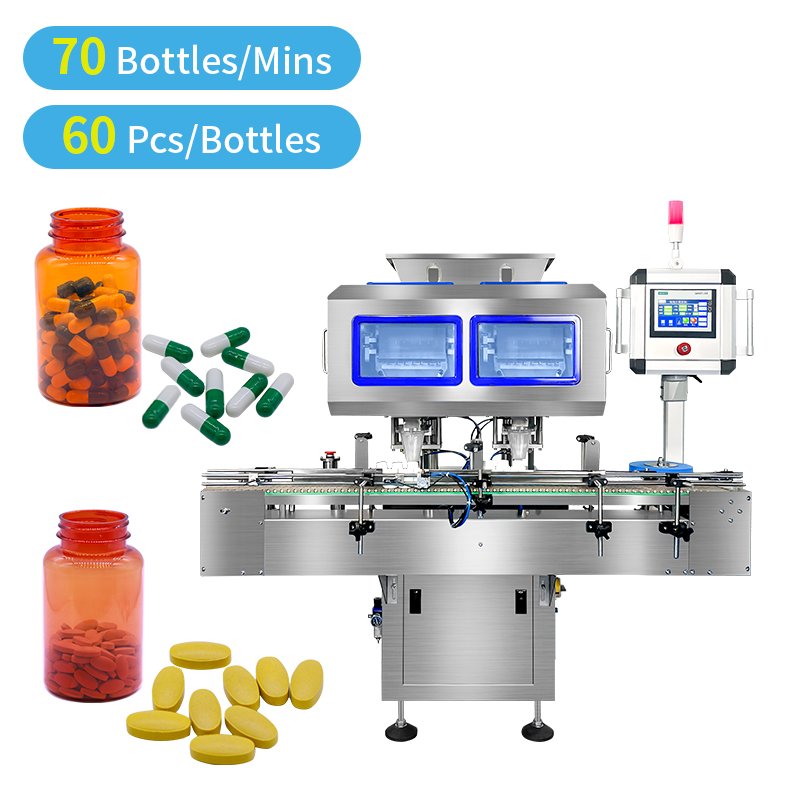Many manufacturing facilities still rely on semi-automatic capsule filling machines for their production lines, often influenced by the lower initial investment. However, this short-term saving introduces significant long-term operational challenges and hidden costs that can adversely affect efficiency, product quality, and compliance—especially in strictly regulated markets like Europe and North America.
The Hidden Costs of Semi-Automatic Capsule Fillers
The core issue with semi-automatic machines is their extensive dependence on manual labor. A single semi-automatic unit typically requires at least two operators to function continuously. The process is repetitive and hands-on: workers must constantly load empty capsules, add powder, move capsule trays from the seeding station to the filling station, then to the locking station, and finally discharge the finished product. This cycle repeats endlessly.
This reliance on human intervention leads to several critical problems
High Labor Costs: Multiple operators per machine dramatically increase payroll expenses.
Low Output and Inefficiency: The manual transfer of trays between stations severely limits production speed, creating a bottleneck that caps your overall capacity.
Inconsistent Product Quality: Human involvement in critical steps like powder filling and tray handling introduces variability. This often results in dosage inaccuracies, weight variation, and compromised capsule integrity.
cGMP Non-Compliance Risk: Open handling of capsules and powders increases the risk of cross-contamination. Furthermore, the process lacks automated data recording, making batch traceability extremely difficult—a major red flag for regulatory audits.
Workplace Fatigue: Monotonous and repetitive motions lead to operator fatigue, which further amplifies the risk of errors and accidents.
The Fully Automatic Advantage: Efficiency, Compliance, and Quality
Fully automatic capsule filling machines, like the NJP 400, are engineered to eliminate these pain points entirely. They represent a holistic integration of automation that transforms the production workflow.
Imagine a setup where you simply connect an empty capsule loader and a vacuum powder transfer system to your machine. The operator starts the cycle via the intuitive PLC touchscreen interface. The machine runs seamlessly, only requiring attention when an alert signals that the empty capsule needs refilling or the powder supply is low. That’s it.
Here’s how this automation delivers tangible benefits
1. Drastic Reduction in Labor: One operator can effortlessly manage multiple fully automatic machines simultaneously, slashing labor costs and reallocating human resources to more valuable quality control tasks.
2. Massive Boost in Output: With automated, continuous operation and no need for manual tray transfers, machines like the NJP 400 can achieve outputs of 24,000 capsules per hour or more, unlocking unprecedented production scalability.
3. Guaranteed cGMP Compliance: A fully enclosed system prevents human contact with the product, virtually eliminating the risk of cross-contamination. Furthermore, modern automatic fillers come with data recording capabilities, providing complete electronic batch records for full traceability and simplified regulatory compliance.
4. Higher Precision and Quality: Servo-driven systems ensure each capsule is filled with incredible accuracy (>99%), ensuring consistent dosage weight and superior product uniformity that manual processes can never reliably achieve.
5. Enhanced Operational Safety: Built-in safety interlocks and guards protect operators from moving parts, creating a safer working environment compared to the repetitive manual handling required by semi-automatic models.
Conclusion: A Smart Investment for Future Growth
While the upfront cost of a semi-automatic capsule filling machine may seem appealing, the long-term operational expenses, inefficiencies, and compliance risks make it a costly choice for any serious manufacturer targeting markets. Upgrading to a fully automatic capsule filling machine is not just an equipment purchase—it’s a strategic investment in productivity, quality, and compliance that delivers a faster than expected Return on Investment (ROI) and positions your facility for sustainable growth.
